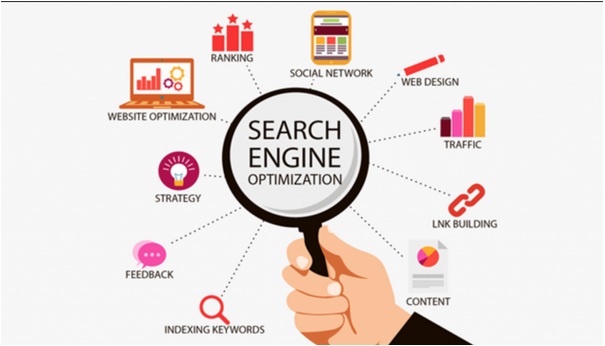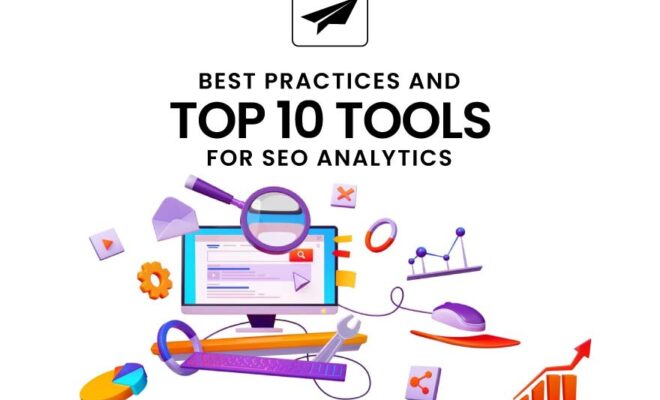How To Do Search Engine Optimization

When it comes to SEO, there are no quick fixes. Search engine optimization is a process that takes time and commitment — but the payoff is worth it. In this article, we’ll go over what search engine optimization is and how to get started with your own site’s SEO strategy. Want to learn more join our digital marketing course Noida.
SEO is no longer about manipulation
Search engine optimization (SEO) is no longer about manipulating search engines to get the top rankings, it’s about creating a website that people will want to visit. In other words, if you have a great product or service and you provide value in your content then people will find your page by searching for related topics. This is why SEO has evolved into a much more useful approach than just trying to trick the search engines into thinking you’re relevant when you aren’t.
Keywords in the title tag are highly important
Search engine optimization (SEO) is a must for any website that wants to rank highly in search results. While there are many factors involved, one of the most important things you can do is optimize your title tag. The title tag is what shows up on top of your webpage in search results, so it’s incredibly important that it contains the right words people will use when they search for what you have to offer (known as keywords).
Keywords in the Title Tag Are Highly Important: A good title tag should include your main keyword and be short enough to fit on a single line within Google’s guidelines. It should also be unique for each page on your site because if two pages have similar titles or descriptions, both will get penalized by Google’s algorithm and neither will rank as high as they could have otherwise!
Your content needs to be information-rich and keyword-relevant
The content of your website is what enables it to be found by search engines, so it’s important that you make sure it’s relevant and useful to the reader. To do this, you need to use keywords in your content.
The right amount of keywords will vary depending on how many pages you’re targeting and whether or not you’re trying to rank for a single keyword or multiple keywords with variations like “best” or “cheap.” The goal here is simply to make sure that the words on each page are relevant to its topic so that Google knows what kind of information users can expect when they click through.
For example: if your business sells surfing gear online and has an article titled “How To Choose Your First Surfboard” then keyword research will help figure out which terms people are using when they look up this information online (i.e., “how much does a surfboard cost?).
Write content for humans — not just search engines.
- Write content for humans — not just search engines.
- Use keywords naturally without stuffing them in or forcing them into your content.
- Include meta descriptions that are descriptive and relevant to the content you’re creating, so people can find it when they search on Google or Bing.*
- Use the keywords you want to rank for in the first 100 words of your content, but don’t go overboard with it — otherwise, readers won’t stay long enough to get through a full article.*
- Include a call-to-action at the end of every piece of content so people know what they should do next: sign up, buy something online, etc.*
Set up Google Search Console
Google Search Console (formerly Webmaster Tools) is a free service that helps you monitor and optimize your site. With the Google Search Console, you can:
- Get data about how often people from different locations are coming to your site, or whether they’re seeing the correct page after arriving at your site
- See keyword phrases people use to search for your content
- Analyze how many times each of those keywords appears in Google search results pages (SERPs)
Understand the mobile optimization basics
Search engine users have changed the way they use the web. As a result, search engines are increasingly mobile-first. This means that to rank well on search engines like Google and Bing, you need to optimize your site for mobile users.
Mobile optimization is different from desktop optimization:
- Mobile optimization is about making your site easier to read and navigate on a small screen by reducing clutter and optimizing images so they don’t take up too much space.
- Mobile optimization is also about how content looks on a mobile phone (for example, making sure that long text blocks are broken up with subheadings).
Backlinks are still very important
The number of backlinks you have is not as important as the quality of your backlinks.
You can get backlinks from free guest posting, blog comments, and social media (such as Twitter or Facebook). Avoid spammy practices like buying links from third-party sites that offer to do this for you.
Track your progress
Once you’ve started to implement these strategies, track your progress. This can help you determine which strategies worked and which ones didn’t.
- Google Analytics is a great tool for tracking overall traffic and site performance.
- SEMrush and Ahrefs will show you how well your keyword rankings are doing.
- Moz’s SEO Toolbar can show you how many backlinks each page has, along with other useful information like social shares and domain authority (how authoritative the domain is).
- HotJar is a tool that lets you see how people are interacting with your site in real time by recording their clicks, mouse movements, scrolling through pages, etc. so that it can tell whether they’re engaged or not.
SEO is a process that takes time, so commit to it and don’t give up!
SEO is a long-term strategy, not a quick fix. The most important thing to remember when embarking on your SEO journey is that it’s not just about keywords, but about creating content that people want to read. This means making sure your writing style is clear and concise while still maintaining your company’s voice and tone. It also means having a plan in place for the future—not just today or tomorrow—and sticking with it through thick or thin, because if you’re going to be successful at SEO (and marketing in general), you need consistency over time.
Conclusion
For many businesses, search engine optimization is a crucial aspect of their marketing strategy. With so much competition in the digital world today, it’s important not just to have a website but also to make sure that your site ranks well on search engines and displays relevant content when people look for keywords related to what you do. SEO can seem complicated and time-consuming at first glance, but it doesn’t have to be! By following these tips above, we hope that you will be able to improve your ranking within days or weeks at most—and keep climbing higher from there on out as long as you keep putting in the hard work required for success online today.










